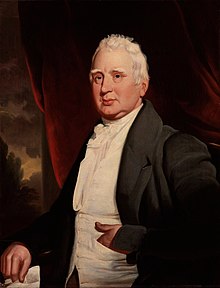1763 – William Cobbett born. English pamphleteer, farmer and journalist, who was born in Farnham, Surrey. He believed that reforming Parliament and abolishing the rotten boroughs would help to end the poverty of farm labourers, and he attacked the borough-mongers, sinecurists and “tax-eaters” relentlessly. He was also against the Corn Laws, a tax on imported grain.
Early in his career, he was a loyalist supporter of King and Country: but later he joined and successfully publicised the radical movement, which led to the Reform Bill of 1832, and to his winning the parliamentary seat of Oldham. Although he was not a Catholic, he became a fiery advocate of Catholic Emancipation in Britain.
Through the seeming contradictions in Cobbett’s life, his opposition to authority stayed constant. He wrote many polemics, on subjects from political reform to religion, but is best known for his book from 1830, Rural Rides, which is still in print today.
.
.
1895 – Leopold von Sacher-Masoch died. Austrian writer and journalist, who gained renown for his romantic stories of Galician life. The term masochism is derived from his name.
During his lifetime, Sacher-Masoch was well known as a man of letters, a utopian thinker who espoused socialist and humanist ideals in his fiction and non-fiction.
Most of his works remain untranslated into English. The novel Venus in Furs is his only book commonly available in English… and also (coincidently ?) the name of a song by the Velvet Underground – see John Cale, below.
.

.
1930 – Ornette Coleman born. American saxophonist, violinist, trumpeter and composer. He was one of the major innovators of the free jazz movement of the 1960s
.
.
1942 – John Cale born. Welsh musician, composer, singer-songwriter and record producer who was a founding member of The Velvet Underground.
.
.
1994 – Charles Bukowski died. American poet, novelist and short story writer. His writing was influenced by the social, cultural and economic ambience of his home city of Los Angeles. It is marked by an emphasis on the ordinary lives of poor Americans, the act of writing, alcohol, relationships with women and the drudgery of work.
Bukowski wrote thousands of poems, hundreds of short stories and six novels, eventually publishing over sixty books. In 1986 Time called Bukowski a “laureate of American lowlife“.
Regarding Bukowski’s enduring popular appeal, Adam Kirsch of The New Yorker wrote, “the secret of Bukowski’s appeal. . . [is that] he combines the confessional poet’s promise of intimacy with the larger-than-life aplomb of a pulp-fiction hero.”
.
.


